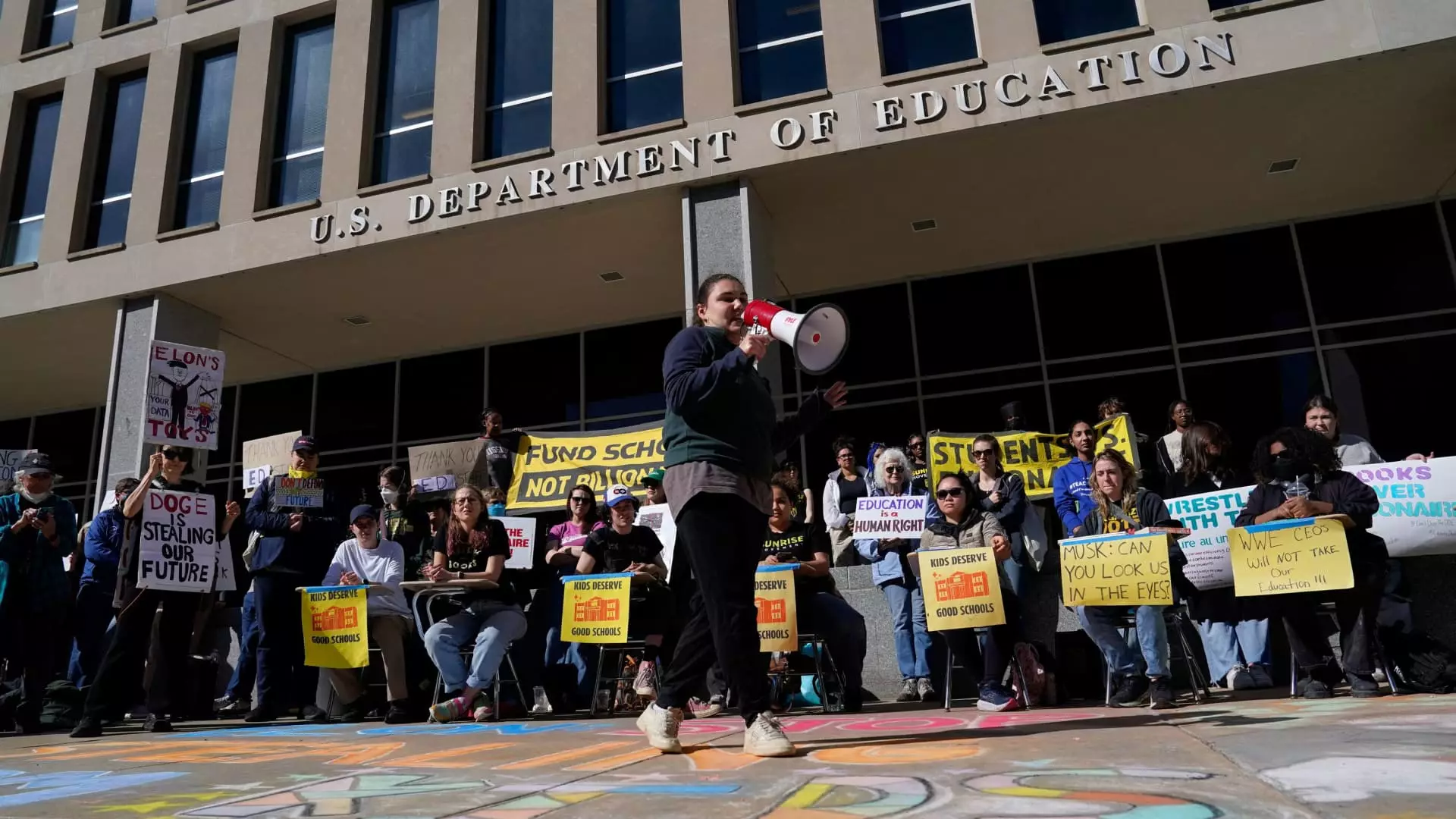The recent battle surrounding the Trump administration’s attempts to dismantle the U.S. Department of Education is not merely a political maneuver—it’s an ominous signal about the value we place on education as a fundamental right. As details leak about the administration’s Supreme Court petition challenging a judge’s order to reinstate over 1,300 employees dismissed as part of sweeping staff reductions, the implications extend far beyond mere job losses. This action represents a calculated strategy to decimate an institution that has, since its inception in 1979, consistently championed equitable access to education.
In a breathtaking show of disregard for civil rights, the staff cuts resulted in the closure of seven out of twelve offices focused on enforcing laws against discrimination. These offices are essential for protecting vulnerable students who face discrimination based on race, disability, or other factors. It is a stark reality that, in the quest for a streamlined bureaucracy, the lives of countless students hang precariously in the balance. The ramifications of this decision will ripple through our educational landscape, potentially stifling aspirations for generations to come.
The Legal Ground Game
The administration’s legal argument hinged on the assertion that U.S. District Judge Myong Joun overstepped his jurisdiction by ordering reinstatement of terminated employees. Such a line of reasoning sounds alarm bells about the overall treatment of institutional integrity in the legal system. It raises a moral question: when is it just for a political entity to prioritize its agenda over fundamental educational values? By promoting a model that hands off essential educational responsibilities to the states, the Trump administration is flirting with a level of chaos that endangers future societal stability.
Furthermore, the elimination of the entire team supervising the Free Application for Federal Student Aid (FAFSA) is a decision steeped in negligence. Given that around 17 million families rely on FAFSA annually for college funding, this move does not just eliminate jobs; it obstructs access to higher education for low-income families. Denying students the opportunities that higher education affords is an attack on the very fabric of our society, as education is a key determinant in upward mobility.
Historical Context and Warnings from the Past
Historically, efforts to dismantle the Department of Education echo past threats posed under Republican administrations. Ronald Reagan’s call for abolition serves as a chilling reminder of the cyclical nature of this fight. The current administration’s attempts to weaken educational oversight and advocate for localized control can only worsen existing disparities that burden marginalized communities. If we permit this rollback of educational rights and civil liberties, we set a dangerous precedent that prioritizes austerity over the investment in human potential.
Ultimately, this situation is a clarion call for solidarity among educators, policymakers, and citizens alike. It compels all who care about the future of education to actively push back against these decisions that sideline the educational needs of our nation’s youth. The urgency now lies not just in restoring lost positions but in affirming an unwavering commitment to a robust Department of Education that upholds equity and civil rights in education.

